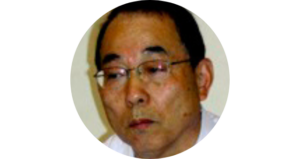
Indication: Professor Maria das Graças Lins Brandão – Faculty of Pharmacy – UFMG
Period: May 29 to June 25, 2005
Isao Kubo is a chemist and works at the Natural Resources Research Institute at the University of California, Berkeley. He has been a professor and researcher in Chemistry of Natural Products in the Department of Science, Policy and Environmental Management since 1988, and in the Department of Nutritional Sciences and Toxicology since 1997. His career began in 1973 as an Assistant Professor at Osaka University, Japan , where he worked on the structural elucidation of marine natural products and on the synthesis of captothecin, an alkaloid with antitumor properties.
Currently, Professor Kubo’s group is working on the development of natural products for ecological use and pest control. Dozens of active natural substances for controlling insects and microorganisms have already been isolated by his team, from various animal and plant sources. One of Professor Kubo’s greatest contributions is his way of discovering substances, based on the meticulous observation of the biochemical processes in nature, which lead to the formation of these natural compounds. Plant resistance to pests, for example, involves the activity of a combination of chemical compounds, many of them very short-lived. According to the Professor, understanding this dynamic is fundamental for the rational design of new drugs and cosmetics.
Based on a simple observation, for example, Professor Kubo’s team discovered that lettuce roots exude the enzyme polyphenol oxidase (PPO). This process could be visualized from the incorporation of a substrate such as catechin in the test solution. The release of PPO changes the color of the test solution from yellow to orange, due to the oxidation of catechin to its corresponding o-quinone. In addition to lettuce, other plants such as tomatoes, alfalfa and wheat also exude PPOs. The role of this enzyme in plants is defense against attacks by microorganisms and insects. This discovery led to the investigation of the mechanism of action of PPO on a molecular basis, using a series of simple phenolic compounds as a model. The study of these processes led to the development of several in vitro assay methods to evaluate the activity of natural substances. Among these, there is the test to verify the inhibitory activity of tyrosinase, an enzyme involved in several pathological processes, related to the excessive production of melanin. Tyrosinase-inhibiting substances can be used, for example, in the treatment of skin blemishes. Another focus of his research is the identification of substances with antimicrobial activity.
Professor Kubo has published over 500 original papers to date. Since 2004 he has been Associate Editor of Revista Latinoamericana de Química. He has consulted for US pharmaceutical companies and African Universities. The Professor has 4 patent registrations for products resulting from his research, along with the University of California. In addition to meetings with scientists from UFMG and UFV, Professor Kubo is interested in establishing contact with Brazilian businessmen, to present results of research developed by him, with natural products obtained from Brazilian plants (data not yet published). Other research results of his have already been transformed into products sold in Japan and New Zealand.